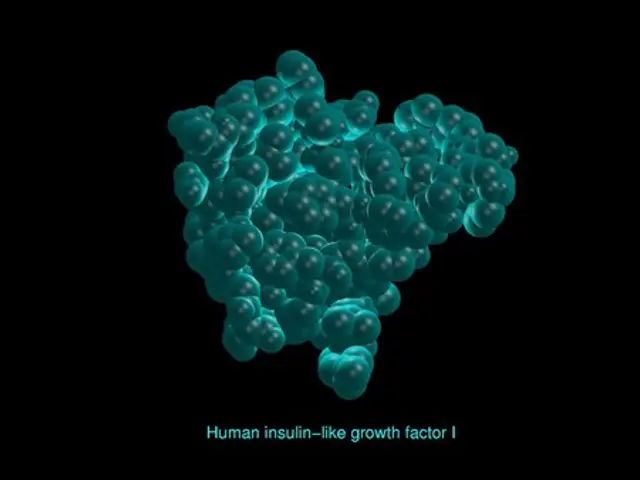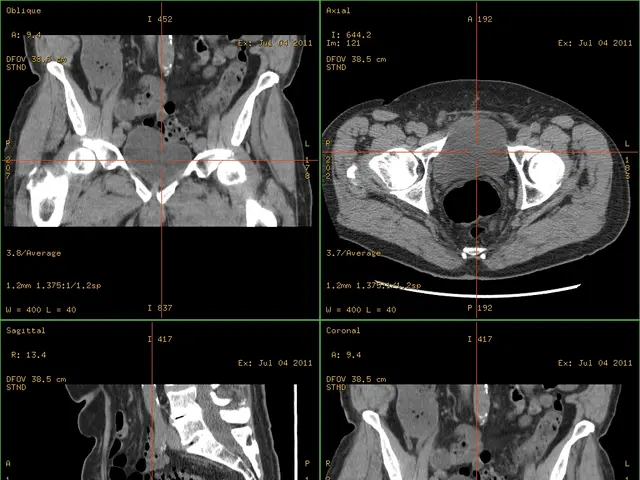The Mystery of Consciousness Remains Unsolved Among Scientists - and the Pioneering Study Confirming Our Blind Navigation
In a groundbreaking development, the Cogitate Consortium, a global collaboration of researchers, published a study in the prestigious journal Nature, aiming to shed light on the enigma of consciousness. The study tested two major theories: the Global Neuronal Workspace Theory (GNWT) and the Integrated Information Theory (IIT), both of which have been shaping the discourse on consciousness for years.
The Global Neuronal Workspace Theory (GNWT) and Integrated Information Theory (IIT)
The current major theories of consciousness include the Global Neuronal Workspace Theory (GNWT), Integrated Information Theory (IIT), and the Orchestrated Objective Reduction (Orch OR) model. Each theory makes distinct predictions about brain activity patterns.
The Global Neuronal Workspace Theory (GNWT) posits that consciousness arises when information is globally broadcasted to multiple brain systems via a network of neurons, especially in fronto-parietal circuits. It predicts widespread, sustained brain activity involving synchronized neuronal firing across distant cortical areas during conscious access [1].
On the other hand, Integrated Information Theory (IIT) proposes that consciousness corresponds to the quantity and quality of integrated information (denoted by Φ) in a system. It predicts that highly integrated and differentiated patterns of neural activity underpin conscious experience. IIT attempts to mathematically quantify consciousness based on causal interactions within the brain's physical substrate [1][3].
The Challenge of Testing Consciousness Theories
Testing and validating these theories has been challenging due to several factors. Conscious experience is subjective and inherently difficult to define or measure objectively in neural terms. Neuroimaging techniques (e.g., fMRI, EEG) and electrophysiology have limited spatial and temporal resolution, making it difficult to capture rapid or micro-scale dynamics predicted by theories like Orch OR [4].
Some theories like IIT face critiques for being hard to falsify or overly abstract, complicating empirical validation [3]. Brain activity patterns linked to consciousness vary widely, complicating the identification of universal neural correlates. Distinguishing neural correlates of consciousness from mere accompaniments or prerequisites remains difficult [4].
For example, in artificial or non-human systems, differentiating genuine conscious experience from behaviorally similar but unconscious processes is problematic [2]. These challenges mean current findings remain largely inconclusive, and no theory yet fully explains or predicts consciousness in a way that can be robustly tested and universally accepted [1][4].
The Cogitate Consortium's Study
The Cogitate Consortium's study focused on brain activity patterns and tested them across multiple laboratories worldwide. The study failed to find the sustained synchronization in the posterior cortex that Integrated Information Theory predicted [5]. Despite this, advocates of both GNWT and IIT found ways to explain away the contradictory evidence from the study [6]. Neither theory won in the study as the results were inconclusive.
The Implications of the Study
The failure to definitively validate any consciousness theory has profound implications, suggesting that consciousness might be fundamentally different from other biological phenomena we've successfully explained. The study represented the first serious attempt to break the cycle of confirmation bias in consciousness research [7].
Rejecting a consciousness theory isn't just abandoning an intellectual position - it's questioning one's understanding of one's own subjective experience. The study exposed that most studies testing these theories are conducted by their own advocates, leading to biased results [8].
New technologies like advanced brain imaging techniques, neural interfaces, and computational models provide unprecedented ways to examine the neural basis of conscious experience, but they won't solve the consciousness puzzle without better theoretical frameworks to guide their application [9]. The Cogitate Consortium's inconclusive results remind us that consciousness isn't just another scientific puzzle waiting to be solved. It's the foundation of everything we consider meaningful about human existence.
The Future of Consciousness Research
The journey of consciousness research continues to reveal fascinating insights about the nature of mind and reality. Understanding why consciousness research has been so chaotic requires examining the psychology of the researchers themselves [10]. Perhaps consciousness requires new conceptual frameworks that haven't been invented yet.
The persistence of theoretical disagreement in consciousness research isn't necessarily a bug - it might be a feature of how science progresses when dealing with genuinely hard problems. Whether science will eventually crack the consciousness code remains an open question. But one thing is certain: the study marks the beginning of a more mature phase in consciousness research, involving larger collaborative efforts and the importance of theory-neutral researchers.
Science and health-and-wellness, especially mental health, are crucial aspects to consider in the ongoing debate regarding the nature of consciousness. The Cogitate Consortium's study, focused on the Global Neuronal Workspace Theory (GNWT) and Integrated Information Theory (IIT), has highlighted the importance of addressing mental health concerns in understanding consciousness. The study's inconclusive results remind us that despite advancements in technology and brain imaging techniques, the foundation of our subjective experiences remains elusive and warrants further exploration in the realm of mental health research.




